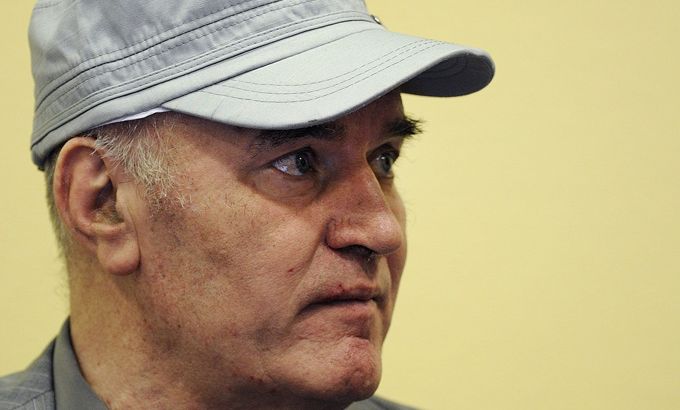
Will Ratko Mladic’s trial deliver justice?
Seventeen years after he was indicted, the former Bosnian Serb military chief is finally facing charges of genocide.
Seventeen years after he was indicted, Ratko Mladic is finally facing charges of genocide.
On Wednesday, the former Bosnian Serb military chief faced his first day in front of the International Criminal Tribunal for the former Yugoslavia (ICTY) at The Hague, charged with genocide and war crimes.
|
“The prosecutor, I think has done a good job, of speaking of really … a state-sponsored plan of genocide … and that continues to be executed today because actually as Mladic goes on trial … refugees who were originally from Srebrenica now have been ethnically cleansed … they can’t not only go back but they can’t now even vote in the elections for the next local council and mayor.“ – Muhamed Sacirbey, a former Bosnian ambassador to UN |
The prosecution argues that Serb atrocities were not spontaneous but part of a plan to ethnically cleanse Muslims and Croats from land Serbs wanted and that Mladic was an integral part of this plan.
Officials at the court are concerned that this case should not drag on for too long. But the events being considered are extremely complex and took place in many different towns and villages in Bosnia. So the trial of Mladic is likely to last for years.
Nevertheless, his trial will be the last for the ICTY – a UN body that is separate from the International Criminal Court (ICC) and which has been tasked with prosecuting serious crimes committed during the Balkans conflict. But how successful has the tribunal been in delivering justice?
With an annual budget of more than $150m, the cost of the ICTY has been almost the same as that of the ICC.
During the 19 years of its existence, the most significant trials conducted by the ICTY have been those of Bosnian Serb political leader Radovan Karadzic and Mladic.
The tribunal has indicted 161 people in total. Of those 126 were sentenced, 13 acquitted and three died in custody while 36 cases were terminated.
|
“The judges are going to have a very difficult time to ensure that General Mladic’s rights are respected in the trial process but at the same time preventing him from using this as a political platform which is to be expected.“ – Toby Cadman, an international criminal lawyer |
Slobodan Milosevic, the former Serbian leader, died of a heart attack in detention in 2006 before a verdict in his trial could be reached.
The success or failure of Mladic’s trial will go a long way to establishing how the UN court is perceived by generations to come.
So, will justice be served? And will Mladic’s trial serve as a deterrent for those who, in 2012, continue to wage war against their people?
Inside Story, with presenter Kamahl Santamaria, discusses with guests: Muhamed Sacirbey, a former Bosnian ambassador to the UN; Toby Cadman, an international criminal lawyer and a former special adviser to the chief prosecutor of Bosnia; and Slobodan Samardzija, a journalist at the Politika Daily newspaper in Serbia.
|
“Ratko Mladic, I’ve seen in Potocari, where I begged him to let my son go. He promised that he will release my child, my child was ill, but he lied to me. As an officer, as a general – he lied to me. We are living witnesses; we want to know all that will happen in The Hague, and what the trial will look like.” Srebrenica massacre witness |
FACTS:
- The trial of Ratko Mladic began on Wednesday
- He is charged with war crimes for his role in the Bosnian conflict
- He faces a genocide charge over the 8,000 Muslims killed in Srebrenica
- The former general was indicted in 1995 and spent years hiding in Serbia
- He was indicted on 11 counts of genocide and crimes against humanity
- Serbian special forces captured Mladic in May 2011
- Mladic rejects the charges against him as “monstrous” and “obnoxious”
- The trial could be disrupted by Mladic’s poor health
- The International Criminal Tribunal for the former Yugoslavia (ICTY) was formed in 1993
- Over 130,000 people were killed in the conflict in the former Yugoslavia
- Some war crimes suspects are still seen as heroes in their communities
- Mladic’s trial is expected to continue for several years